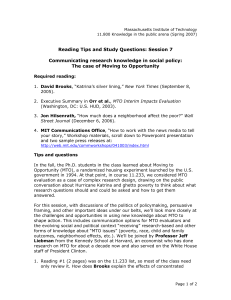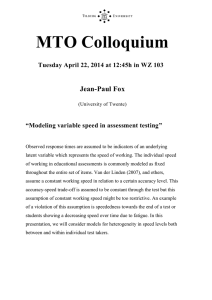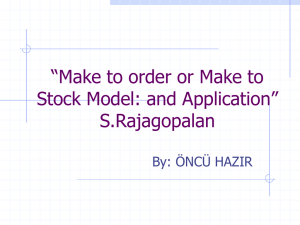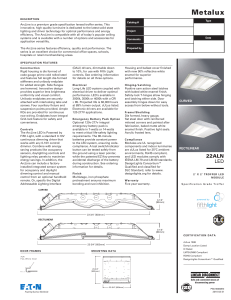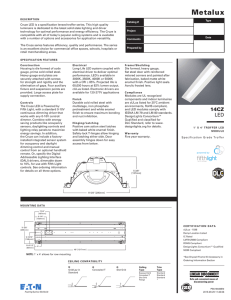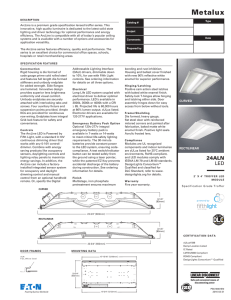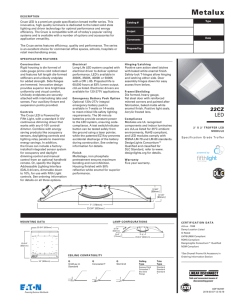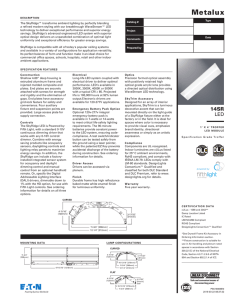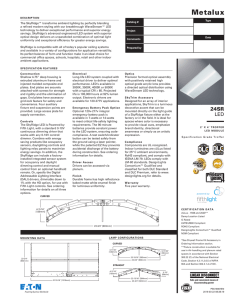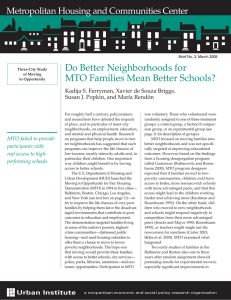Forutsigbar effekt i systemer med funksjonalitet for å tilpasse seg uforutsigbare endringer
advertisement
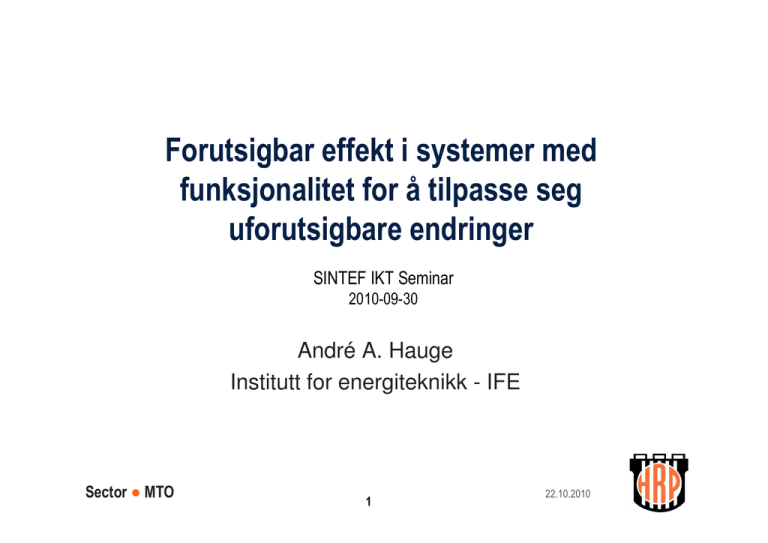
Forutsigbar effekt i systemer med funksjonalitet for å tilpasse seg uforutsigbare endringer SINTEF IKT Seminar 2010-09-30 André A. Hauge Institutt for energiteknikk - IFE Sector ● MTO 1 22.10.2010 Change is good SINTEF IKT Seminar 2010-09-30 André A. Hauge Institutt for energiteknikk - IFE Sector ● MTO 2 22.10.2010 Self-adaptive software what is it what is it good for case Sector ● MTO 3 22.10.2010 Self-adaptive software... ”...evaluates its own behaviour and changes behaviour when the evaluation indicates that it is not accomplishing what the software is intended to do, or when better functionality or performance is possible” [Laddaga 1997] ”...modifies its own behaviour in response to changes in its operating environment...” [Oreizy et al. 1999] Sector ● MTO 4 22.10.2010 Self-* properties Self-configuring Self-healing (Self-repairing, Self-diagnosing) Self-optimizing (Self-tuning, Self-adjusting) Self-protecting Self-awareness (linked to Self-monitoring) Context-awareness [Salehie & Tahvildari] Sector ● MTO 5 22.10.2010 Good for... Adaptive systems proposed and explored in many different domains, e.g.; Health [Beda et al. 2010] Nuclear Power Production [Nestorov et al. 09] Space exploration [Sierhuis et al. 03] Millitary applications [Soares et al. 06, Tallant et al. 06] Motivation is to increase performance or Safety by applying techniques for handling variations in dynamics, unknown variations, unforseen events Sector ● MTO 6 22.10.2010 NASA: ”This is a survivable accident” Sector ● MTO 7 22.10.2010 NASA IFCS (Intelligent Flight Control System) The IFCS project aim was to provide increased resiliency to extreme changes in air plane flight behaviour. Destabilizing failures was simulated in order to challenge an adaptive system to compensate for failures during operation and stabilize the plane Sector ● MTO 8 22.10.2010 Sector ● MTO 9 22.10.2010 Neural network-based flight control technology Direct adaptive approach, neural network output are applied directly to the flight control system feedback errors Preliminary flight tests of an pre-trained neural network to NF-15B's aerodynamic database were flown in Spring 1999 IFCS Generation I flight tests, flown in 2003, onboard algorithms to identify changes in aerodynamic characteristics. It used a Neural Network to organize and map these aerodynamic changes and provide information to control system Sector ● MTO 10 22.10.2010 Risk reduction flights were flown in 2005 in preparation for the Generation II tests Generation II flight tests allow the neural networks to take more direct control. flown in period 2006-2008 Generation II neural network takes 31 inputs from the roll, pitch, and yaw axes and the control surfaces to measure the aircraft state Sector ● MTO 11 22.10.2010 Technical Solution – IFCS Gen II Sector ● MTO 12 22.10.2010 NASA Conclusion on IFCS project Able to compensate for adverse flight conditions with adaptive neural network Flight test showed promising result Validation methods not likely strong enough for production program Sector ● MTO 13 22.10.2010 Self-info André A. Hauge PhD student at UiO Project title: Safe Adaptive Control Started: 01.09.2008 Ends: 31.08.2012 Project funded by: Institutt for energiteknikk Sector ● MTO 14 22.10.2010 Thank you for your time! Sector ● MTO 15 22.10.2010 Sector ● MTO 16 22.10.2010

